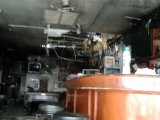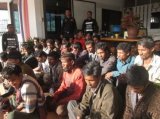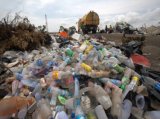In an extensive interview with Phuketwan, Senator Tunyaratt Achariyachai put her support behind the ''Phuket, City of Peace and Happiness'' project.
''It's a project to improve the standards of safety and security for tourists and for Phuket residents,'' Senator Tunyaratt said.
The aim is to spend 270 million baht providing a layer of technology to support authorities whose aim is to protect Phuket.
In Bangkok on Thursday, key aspects of the ''Phuket, City of Peace and Happiness'' project were revealed.
These include:
..Consolidation of the present security camera system with the introduction of new cameras and a heightened preparedness to react;
..A Geographic Information System that maps Phuket and all its major roadways and installations, water supply and electricty connections and provides information for speedy reaction to breakdowns and emergencies;
..A Vehicle Information System so buses and other vehicles can be more easily monitored from licence plates and other information;
..A Face Recognition System so that police could check on a person's background straight into a data bank using a smartphone;
..A Foreigner Advance Search that would provide passport numbers, an address and other personal background.
About 56 million baht would be required next year for gradual implementation of the whole 270 million baht package over four years.
Although technology can help to solve some of Phuket's problems, Senator Tunyaratt also believes the core issues have more to do with changes in attitude.
''Lately we have had reports that some beach operators are stopping tourists sitting on towels and claiming that the beaches are private,'' Senator Tanyaratt said.
''That is just not acceptable. More and more, the beaches are being despoiled by private commercial interests.''
Phuketwan believes the only way to save Phuket's beaches is to establish a single Phuket Beach Authority, with money from limited commercial beach activities being directed into protecting the beaches.
''One thing that might help,'' Senator Tanyaratt said, ''is for Phuket authorities to visit places such as Hawaii where the beaches remain attractive and where activities are clearly controlled.''
Whether knowledge is an antidote for greed remains the issue. With every beach more or less controlled by a different local authority, there is no overall strategy.
''I also believe it should be possible to have different activities on the beach at different times, and perhaps to clear all the loungers and other clutter entirely so that natural sunsets can be enjoyed by everyone.
''Sadly, Phuket is becoming more and more like Pattaya,'' Senator Tanyaratt warned.
Senator Tanyaratt said that the once pure white sands of Karon had been discolored with poor management, contamination and pollutants.
''Cooking oil and dirty water have tainted the sand and made it much darker than it was 10 years ago,'' she said. ''That's a shame, and it shows how Phuket is changing.''
Phuket simply cared about greater numbers of tourists rather than quality, she said. As a result Phuket's own quality was suffering.
''Food prices are also becoming an issue that more and more tourists complain about,'' she said.
The food rip-off was simple. Creative photo menus purported to show the meal, but when the plate arrived in front of the diner, the portion was often much smaller, she said.
''The cost of living is rising rapidly on Phuket so the restaurant owners deal with it by reducing the food portions,'' Senator Tanyaratt said.
The same kind of selfish, unregulated approach applied to fireworks that were fired off virtually every night in high season unchecked along the holiday west coast, despite complaints from tourists and hotel managers.
''Sky lanterns are also dangerous and have been known to start fires,'' she said. ''Yet there is no proper application of the law.''
The budget for infrastructure and enforcement was always lower than it should be because tourists and workers from other provinces were not included in the calculations, she said.
In Singapore, she said, where the number of resort rooms was controlled to match the predicted number of tourists, three-star resorts were often upgraded to four-star or five-star to meet demand.
But on Phuket the reverse was happening, she said, with five-stars and four-stars often forced to drop their prices to three-star levels to compete because of the oversupply of resorts.











Hawaii would certainly be a perfect model.
They really do it well and have got all the mixes right.
Clean uncluttered beaches, picnic areas, maintained beachfront parks, a proud cultural atmosphere and best of all a hop-on hop-off bus shuttle service around the major tourist and shopping precincts.
Posted by Hugh Jarse on July 29, 2012 11:32